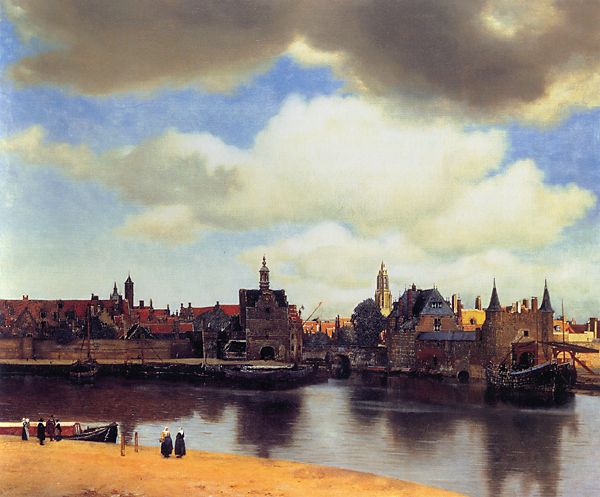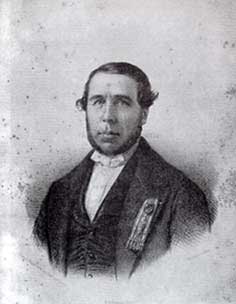
October 31

1517 The Protestant Reformation in Germany is inaugurated when Martin Luther nails a list of 95 theses to the door of the church in Wittenberg. These propositions deny the right of the pope to forgive sins by the sale of indulgences, among other challenges, and are widely circulated in Germany to great controversy. (Bradley)

1755 A huge earthquake reduces two-thirds of Lisbon to rubble, killing 60,000 and destroying thousands of early books and important historical documents. (Bradley)


1815 Sir Humphrey Davy of London patents the miner's safety lamp.

1838 A mob of about 200 attack a Mormon camp in Missouri, killing 20 men, women and children.

1870 Birth: Hugh Ross Mackintosh, Scottish theologian; will teach systematics at Edinburgh 1904-35, Mackintosh will have a firm grasp of the German theological writers of his day and will seek to make their teachings known in Britain, for which he is unfairly judged a liberal. (Bradley)
1887 Birth: Chiang Kai-Shek, the first leader of Nationalist China.
1917 WW1: Allenby attacks in the Third Battle of Gaza (Battle of Beersheba). Allenby leaves three divisions demonstrating in front of Gaza and secretly moves against Beersheba. The surprise is complete, and an all-day battle culminates in a mounted charge at dusk by an Australian cavalry brigade over the Turkish wire and trenches into Beersheba itself, capturing the vital water supply.
1918 WW1: Pershing's First Army punches through most of the third and final German line in France.
1918 WW1: Italian reinforcements exploit the ever-widening gap at Sacile and Austrian resistance collapses.



1938 Polish Foreign Minister Beck instructs Ambassador Lipski to negate Ribbentrop's proposals.

1939 Church and Reich: Oct-Nov During this period 214 Polish priests are executed, among them the entire cathedral chapter of the bishopric of Peplin. (Broszat; Lewy)


1946 Arthur Weiss, Commander of Jewish War Veterans Atlanta Post No. 112, and 125 Jewish war veterans confront the Columbians at a meeting in Atlanta. Police intervene and violence is avoided.
1952 The United States explodes the first hydrogen bomb at Eniwetok Atoll, part of the Marshall Islands, in the Pacific.
1956 Britain and France invade Suez.
1964 Englands Windmill Theatre, whose wartime slogan was 'We Never Close,' closes.
1968 The Nam: President Johnson announces a halt in the US bombing of North Vietnam.
1971 Saigon begins the release of 1,938 Hanoi POW’s.



1988 Former Philippine first lady Imelda Marcos pleads innocent to charges that she and her husband, deposed President Ferdinand Marcos, embezzled more than $100 million from the Philippine government. (Bradley)
1990 Egypt rebuffs a call by Soviet leader Mikhail Gorbachev for a peaceful settlement to the Gulf crisis, but a key Soviet diplomat says his government has not ruled out military force.
1993 Voters in Peru narrowly approve a new constitution, increasing the power of the presidency.
2000 The Confederation of British Industry begs fuel protesters not to take to the streets again, warning they will do 'immense' damage to the economy, with thousands of jobs lost.
2001 The UK Prime Minister declares that there must be an end to terrorism 'wherever it exists' and indicates a full-scale ground invasion of Afghanistan may take place.

2001 The French newspaper Le Figaro claims that Osama bin Laden stayed for 10 days in a Dubai hospital in July, 2001 for treatment of a serious kidney ailment.
2001 Under heavy security, two armored vehicles transport $200 million in gold from a Bank of Nova Scotia vault located in the ruins of the World Trade Center.

2003

2004

2004

2004

Visit:




 Visit:
Visit:

Click Here to email the History: One Day At a Time webmaster.